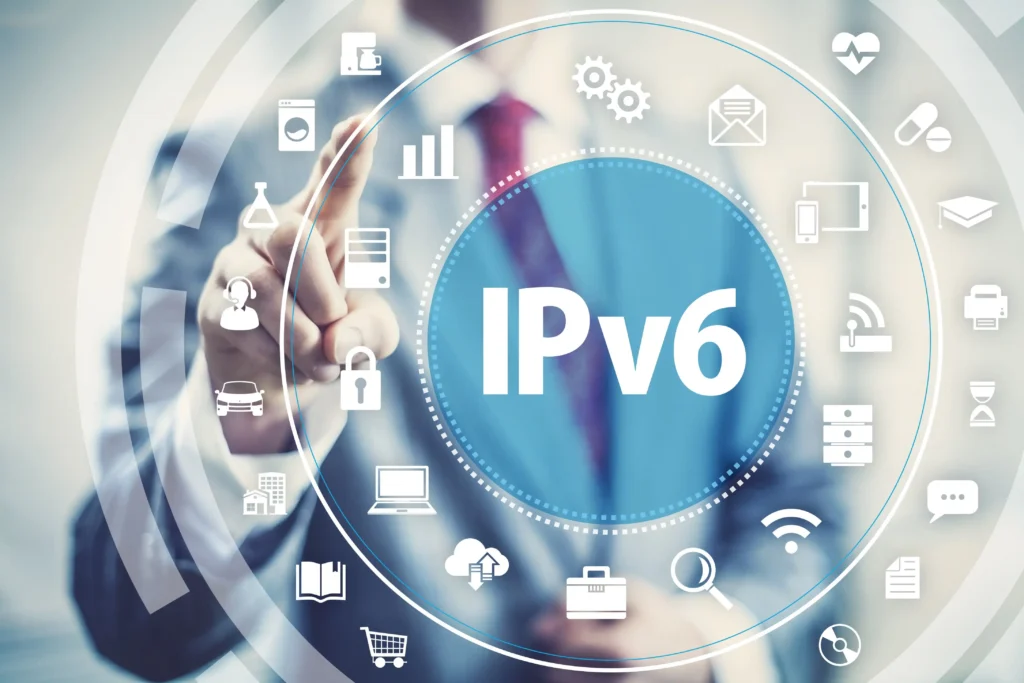The energy sector is undergoing a significant transformation due to technological advancements, and IPv6 is playing a crucial role in this evolution. This article delves into the effects of IPv6 on the energy sector and underscores the significance of its implementation.
The Importance of IPv6 on Smart City Applications
To fully grasp the significance of IPv6 in smart city applications, it’s essential to understand the specific challenges and benefits that this technology addresses:
- Rising Population and Urbanization Trends: As urban populations grow, the need for smarter, more efficient city infrastructure becomes paramount. IPv6 enables the seamless integration of more devices and sensors, which is crucial for managing the complexities of modern urban environments.
- Proliferation of Smart Devices and IoT Networks: The rise of IoT devices in urban settings requires an addressing scheme that can accommodate billions of devices. IPv6’s expansive addressing capacity makes it ideal for supporting the massive scale of IoT networks in smart cities.
- IPv6’s Expansive Addressing Capacity and Network Management Advantages: IPv6 not only provides more IP addresses but also offers enhanced network management features. This is particularly important for maintaining the reliability, security, and efficiency of smart city applications.
How to Use?: Utilizing IPv6 in Smart City Applications: Application Examples
Implementing IPv6 in smart city applications involves several key areas where this technology can make a significant impact:
- Integration of Smart Lighting Systems with IPv6: IPv6 allows for the connection of numerous smart lighting systems across a city, enabling centralized control, energy efficiency, and adaptive lighting based on real-time conditions.
- Implementation of Traffic Management and Parking Monitoring Systems on IPv6 Infrastructure: Traffic management systems can be enhanced with IPv6 to allow real-time adjustments and efficient management of parking spaces. This leads to reduced congestion and optimized use of urban spaces.
- Designing and Implementing Smart Building Systems Compatible with IPv6: Smart buildings require a robust and scalable network infrastructure. IPv6 supports the integration of various building management systems, including HVAC, security, and lighting, ensuring seamless operation and communication between devices.
What are the Structures?: IPv6 Infrastructure and Smart City Applications
The implementation of IPv6 in smart city applications requires a well-planned infrastructure. The following components are essential:
- Infrastructure Requirements of IPv6 for Smart City Applications: Existing urban infrastructure must be upgraded to support IPv6. This includes ensuring that all network devices, such as routers and switches, are IPv6-compatible.
- Communication Protocols of IoT Devices and Sensors with IPv6: IoT devices in smart cities need to communicate effectively. IPv6 provides standardized communication protocols, ensuring interoperability and efficient data exchange between devices.
- Impact of IPv6 on the Security and Efficiency of Smart City Applications: Security is a major concern in smart cities. IPv6 offers advanced security features that protect sensitive data and ensure the safe operation of smart city applications.
What is the Importance?: Importance and Benefits of IPv6 for Smart City Applications
IPv6 offers several critical benefits for the development and operation of smart city applications:
- Expanded Network Access and Scalability: With IPv6, smart cities can scale their networks to accommodate more devices and services, ensuring that the infrastructure can grow alongside the city’s needs.
- Ensuring Data Security and Privacy: IPv6’s built-in security features help protect sensitive information, maintaining the privacy and security of citizens’ data.
- Positive Effects of Smart City Applications on Sustainability and Quality of Life: By enabling more efficient resource management and improving urban services, IPv6 contributes to the sustainability of smart cities and enhances the overall quality of life for residents.

Conclusion: IPv6 and Smart City Applications: A Critical Step Towards the Cities of the Future
As cities continue to grow and evolve, the implementation of IPv6 will be a critical component in the development of smart city applications. The expansive addressing capacity, enhanced security features, and improved network management capabilities of IPv6 make it an essential technology for modern urban environments. By adopting IPv6, cities can better manage resources, improve the quality of life for residents, and ensure a sustainable future.
- The impact and advantages of IPv6 on smart city applications are profound, offering new possibilities for urban development.
- Strategies for future smart city development should include a focus on IPv6 to ensure that cities can adapt to technological advancements.
- The importance of IPv6 in smart city applications cannot be overstated, making it essential to complete the transition process as soon as possible.




